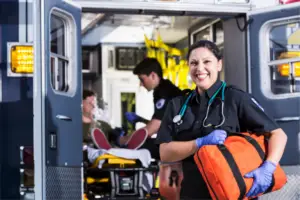This article contains a compiled list of the top 10 sellable (profitable) medical courses to study in 2024.

The medical field is broad (consisting of a wide range of courses), and the number of years required to study these courses at the University varies in different countries around the world. But the least number of years one can study a medical course is 3 years, and after you’ve graduated from a specific medical field of study, you’re then considered a professional in that field. Without a doubt, medical professionals are of vital importance to humans and other living things, as they always make it their top priority to save lives. So this makes medical courses and their practitioners very important to mankind.
Bearing in mind how vast the Medical field is, it is sometimes very confusing for scholars to decide on which of the Medical courses to settle for, since courses are more sellable than the other. Hence, the goal of this article.
10 SELLABLE MEDICAL COURSES TO STUDY
After various research and analysis on the wide range of medical courses, we decided to draft out the top 10 sellable medical courses and below are some of them:
1. Medicine and Surgery
First on our list of sellable Medical courses is Medicine and Surgery. This has to do with the structure, functions, and metabolic activities of the human body. This enables the professionals in this field to treat any malfunction through drugs and surgical procedures.
As a professional in the field of medicine and surgery, you’ll also have basic knowledge of all other medical fields. That’s the uniqueness of this particular field. They get to study in and outside their specified field in general.
2. Dentistry
Another sellable course in Medicine is dentistry. This is a branch of medicine that has to do with the study, diagnosis, prevention, and treatment of diseases, disorders, and conditions of the oral cavity, usually in the dentition but also in the oral mucosa, and of adjacent and related structures and tissues, specifically in the maxillofacial area. Since teeth is a very important part of the body, humans must need a dentist on a daily basis. Hence, the reason it made it to the list of sellable Medical Courses.
People who specialize in this medical field are called Dentists.
3. Medical laboratory scientist

A medical laboratory scientist, also commonly referred to as a clinical laboratory scientist or medical technologist, is a healthcare professional who performs chemical, hematological, immunologic, histopathological, cytopathological, microscopic, and bacteriological diagnostic analyses on body fluids such as blood, sputum, urine, stool, cerebrospinal fluid, pericardial fluid, peritoneal fluid, and synovial fluid, as well as other specimens. Medical laboratory scientists work in clinical laboratories at hospitals, biotechnology labs, reference labs, and non-clinical industrial labs. They are needed daily in both private and government Medical firms.
4. Nursing
I refer to nurses as “hotcakes” and the reason is because they are needed everywhere. Nursing educates us on the prevention of illness and injury, the rendering of aid to communities and families, and so on. Nursing is a course that also educates us on how to take care of people and make them feel okay in times of ill health.
Nursing has unifying fundamental values: In assessing a patient, nurses do not just consider test results. Through the critical thinking exemplified in the nursing process, nurses use their judgment to combine objective data with subjective experience of a patient’s physical, biological, and behavioral needs. This ensures that every patient, from city hospital to community health center, state prison to summer camp, receives the best possible care regardless of who they are or where they may be.
Major Responsibilities in the nursing field include:
- Performs physical examination and health histories before making critical decisions
- Provide health promotion, counselling and education
- Administer medications and other personalized interventions
- Coordinate care in collaboration with a wide array of healthcare professionals
The highest-paying nursing jobs are:
- Certified Registered Nurse Anesthetist.
- Gerontological Nurse Practitioner
- General Nurse Practitioner.
- Pain Management Nurse.
- Certified Nurse Midwife
- Psychiatric Nurse Practitioner
- Family Nurse Practitioner.
- Informatics Nurse.
5. Phar-macy
Pharmacology is the science and technique of dispensing, preparing, and reviewing drugs and providing additional clinical services. It is a health profession that links health sciences with pharmaceutical sciences and aims to ensure the safe, effective, and affordable use of drugs.
The professional practice is becoming more clinically oriented as most of the drugs are now manufactured by pharmaceutical industries. Based on the setting, the pharmacy is classified as a community or institutional pharmacy. Providing direct patient care in the community of institutional pharmacies is considered clinical pharmacy.
Most pharmacists work in a community setting, such as a retail drugstore, or a healthcare facility, such as a hospital. Pharmacists in community pharmacies dispense medications, counsel patients on the use of prescription and over-the-counter medications, and advise physicians about medication therapy.
6. Optometry
Previously known as opticians, optometrists are trained to examine the eyes to detect defects in vision, signs of injury, ocular diseases or abnormalities, and problems with general health, such as high blood pressure or diabetes. They make a health assessment, prescribe spectacles, offer clinical advice or contact lenses, and refer patients for further treatment when necessary.
Optometrists study at the university for at least three years and must participate in a particular period of assessed clinical training in practice before being deemed to have the knowledge and skills needed to be registered.
Immediately after getting registered, you have the opportunity to pursue further qualifications and develop your interest in a specialized area of practice.
7. Physiotherapy
Physiotherapy is a treatment to restore, maintain, and make the most of a patient’s mobility, function, and well-being. Physiotherapy aids through physical rehabilitation, injury prevention, and health and fitness.
Physiotherapy experts are called Physiotherapists. Physiotherapists get you involved in your recovery.
Physiotherapists study the science of movement. They learn how to pinpoint an injury’s root cause. Physiotherapists focus on both prevention and rehabilitation. Treatment can be for problems caused by injury, disease, or disability. Here are some examples:
- Problems in the bones, joints, muscles, and ligaments, such as arthritis and the after-effects of amputation.
- Lung problems such as asthma
- Neck and back pain are caused by problems in the muscles and skeleton.
- Disability as a result of heart problems.
- Loss of mobility because of trauma to the brain or spine or due to diseases such as Parkinson’s disease and multiple sclerosis
- Fatigue, pain, swelling, stiffness, and loss of muscle strength, for example, during cancer treatment or palliative care.
- Pelvic issues, such as bladder and bowel problems related to childbirth,
8. Radiology/Radiography
I am sure if you must have carried out an x-ray or a CAT scan before, then you will probably know who the radiologist is.
Radiology is the medical discipline that makes use of medical imaging to diagnose and treat diseases inside the bodies of humans and animals. People who studied radiology and are mainly concerned with providing imaging interpretation are called Radiologists.
Radiography is an imaging technique using X-rays, gamma rays, or synonymous ionizing radiation and non-ionizing radiation to see the internal form of an object. Applications of these imaging techniques include medical radiography and industrial radiography. Similar techniques are used in airport security. People who study radiography are called Radiographers.
Radiographers are medical professionals challenged with operating highly specialized, state-of-the art scanning machines. These health care professionals operate medical imaging equipment.
9. Veterinary Medicine
This particular course has to do with only animals. Veterinarians treat and take care of animals when they have an injury or are ill. They offer their services to both domesticated and wild animals.
Veterinary medicine is the branch of medicine that deals with the prevention, diagnosis, and treatment of disease, disorder, and injury in animals. The scope of veterinary medicine is wide, including all animal species, both domesticated and wild, and a wide range of conditions that can affect different species. People who studied Veterinary medicine are called veterinarians, or Vets for short.
With the number of homes who love pets, this is another sellable Medical course to study in 2024.
10. Human Anatomy
This course teaches a lot about humans and their bodies. People who study human anatomy can also work in hospitals and other places.
Human anatomy is the study of the form and shape of the human body. Anatomists are biological scientists who study the structure of living things. Most anatomists are biomedical researchers and educators focusing on human anatomical form and function.
Conclusion
Studying a medical course is a way to be exposed to medical science and the ways a person’s lifestyle and age affect health. Candidates usually study biology and chemistry, and classes might also teach the philosophy behind medicine as well as ethical concerns. Some courses may focus on the knowledge of ailments such as heart disease and diabetes, while others cover prescription medications and the way they are designed, and so on.
After completing a course in a specific medical field, candidates learn to address specific health challenges and organize themselves professionally in their field. Besides, candidates gain critical-thinking skills that can help them analyze tough problems in the workplace. These skills may help candidates find advanced positions.
Other medical courses that aren’t listed above are also very important, but for the sake of the most required, we presented the top 10 medical courses to you. So if you intend to study any medical course, you can take a look at this article and choose the one you feel most comfortable with.
All the best!







